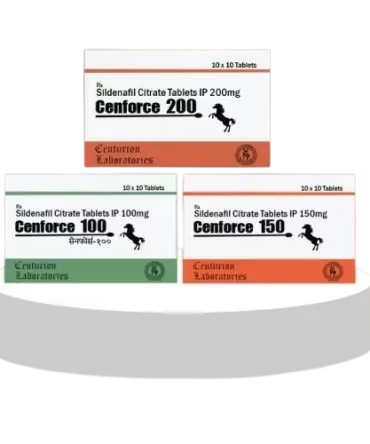What is Abamune 300 mg?
Abamune 300 mg is an antiviral drug that has abacavir as its active ingredient. It is a nucleoside reverse transcriptase inhibitor (NRTI), which is a type of drug. Abamune is an important part of treating Human Immunodeficiency Virus (HIV) infection because it stops the virus from multiplying in your body.
People with HIV need ongoing care and treatment. Abamune 300 mg is often given as part of a combination therapy called Highly Active Antiretroviral Therapy (HAART). It’s important to know that Abamune doesn’t cure HIV, but it does help control the virus, which lets your immune system heal and lowers your risk of getting AIDS-related problems.
At Hr Pharmacy Usa, we provide access to quality HIV medications like Abamune 300 mg at affordable prices, helping the USA manage their condition effectively without financial strain.
How Abamune 300 mg Works
Abamune 300 mg works by stopping HIV from making copies of itself in a certain way. When HIV gets into your body, it uses an enzyme called reverse transcriptase to change its RNA into DNA. This lets it get into your cells and make copies of itself. Abacavir, the active ingredient in Abamune, is a “fake” building block that the virus tries to use in this process.
When the virus incorporates abacavir instead of the natural building blocks it needs, the copying process is disrupted, and the virus cannot create new functional copies of itself. This action effectively:
- Blocks the reverse transcriptase enzyme
- Prevents the virus from making copies of its genetic material
- Reduces the amount of HIV in your bloodstream (viral load)
- Helps protect your CD4 cells (important immune cells targeted by HIV)
By reducing your viral load, Abamune 300 mg helps your immune system recover and function better, allowing you to stay healthier longer. It’s most effective when taken regularly as prescribed and as part of a complete HIV treatment regimen.
Benefits of Abamune 300 mg
Taking Abamune 300 mg as prescribed offers several important benefits for people living with HIV:
- Viral Suppression: Regular use helps keep the amount of HIV in your blood (viral load) at low or undetectable levels. This is crucial for your long-term health and reduces the risk of transmitting the virus to others.
- Immune System Protection: By preventing HIV from multiplying, Abamune helps protect your CD4 cells, allowing your immune system to maintain or improve its function. This means fewer opportunistic infections and HIV-related illnesses.
- Improved Quality of Life: With proper HIV management using medications like Abamune, many people live long, active lives with minimal disruption from their condition. You can continue working, socializing, and pursuing your goals while managing HIV as a chronic condition.
- Flexibility in Treatment: Abamune 300 mg can be taken with or without food, making it easier to incorporate into your daily routine. This flexibility helps with treatment adherence, which is essential for the medication’s effectiveness.
- Combination Therapy Option: Abamune works well as part of a combination therapy approach, which is the standard of care for HIV treatment. Using multiple medications together provides more complete viral suppression than any single drug alone.
Safety Information and Warnings
Before starting Abamune 300 mg, it’s essential to understand the important safety considerations:
Genetic Testing Requirement: You must undergo HLA-B*5701 genetic screening before beginning treatment with Abamune. This test identifies if you’re at higher risk for a serious allergic reaction to the medication. If you test positive for this gene variant, your doctor will not prescribe Abamune and will recommend alternative treatments.
Hypersensitivity Reactions: About 5–8% of patients may have a severe allergic reaction to abacavir, usually within the first six weeks of treatment. Fever, rash, nausea, vomiting, diarrhea, stomach pain, tiredness, cough, trouble breathing, and a sore throat are all signs of this illness. Call your doctor right away and stop taking Abamune if you have any of these symptoms.
Liver Concerns: Abamune can cause liver problems, especially in people with existing liver disease. Regular liver function tests are necessary during treatment. The medication is not recommended for those with moderate to severe liver impairment.
Cardiovascular Risk: Some studies suggest abacavir may be associated with an increased risk of heart attack in certain patients. Discuss your cardiovascular health with your doctor before starting treatment.
Immune Reconstitution Syndrome: As your immune system strengthens with HIV treatment, it may respond to previously hidden infections in your body, causing new symptoms. Report any new symptoms to your doctor promptly.
Lactic Acidosis Warning: In rare cases, NRTIs like Abamune can cause a serious condition called lactic acidosis (buildup of lactic acid in the blood) and severe liver enlargement with steatosis (fatty liver). Symptoms include feeling very weak or tired, unusual muscle pain, trouble breathing, stomach pain with nausea and vomiting, cold or blue hands and feet, dizziness, or a fast or irregular heartbeat.
Dosage Guidelines
Most adults take one tablet of Abamune 300 mg twice a day or two tablets once a day, as directed by their doctor. Your overall treatment plan and any other medications you may be taking will determine your specific dosing schedule.
Key dosage guidelines to follow:
- Take Abamune exactly as prescribed by your doctor
- The medication can be taken with or without food
- Try to take doses at evenly spaced times throughout the day
- Set a regular schedule to help you remember to take your medication
- If you miss a dose, take it as soon as you remember, but don’t double up if it’s almost time for your next dose
- Never change your dosage without consulting your doctor
Consistency is crucial for Abamune’s effectiveness. Taking the medication at the same times each day helps maintain steady levels in your bloodstream, which is necessary for suppressing the virus effectively.
Available Strengths
Abamune is available in different strengths to accommodate various treatment needs:
Abamune 300 mg: The standard adult dosage, typically taken as one tablet twice daily or two tablets once daily.
Abamune 600 mg: A higher-strength option that may be prescribed in specific situations or as part of certain combination therapies.
Abamune 60 mg: A lower-strength option sometimes used for patients who need dosage adjustments due to weight, kidney function, or other factors.
Your healthcare provider will determine the most appropriate strength based on your specific condition, other medications you’re taking, and your overall health status. Never adjust your dosage or switch between different strengths without medical guidance.
Side Effects
Like all medications, Abamune 300 mg can cause side effects, though not everyone experiences them. Understanding potential side effects helps you recognize when to seek medical attention.
Common Side Effects (usually not requiring immediate medical attention unless severe):
- Headache
- Fatigue or unusual tiredness
- Nausea or vomiting
- Diarrhea
- Loss of appetite
- Trouble sleeping
- Mild skin rash
These common side effects often improve as your body adjusts to the medication. Staying hydrated and maintaining good nutrition can help manage some of these effects.
Serious Side Effects (requiring prompt medical attention):
- Signs of hypersensitivity reaction (fever, rash, nausea, vomiting, diarrhea, abdominal pain, fatigue, cough, shortness of breath, sore throat)
- Symptoms of lactic acidosis (unusual muscle pain, difficulty breathing, stomach pain with nausea, cold or blue extremities, dizziness, fast heartbeat)
- Signs of liver problems (yellowing of skin or eyes, dark urine, light-colored stools, loss of appetite for several days, nausea, abdominal pain)
- Unusual changes in body fat distribution (increased fat in upper back, neck, breast, and around the back, chest, and stomach, along with loss of fat from the legs, arms, and face)
If you experience any serious side effects, seek medical help immediately and do not take another dose until you’ve spoken with your healthcare provider.
Usage Recommendations
To get the most benefit from Abamune 300 mg while minimizing risks:
Adherence is Critical: Take every dose as scheduled. Missing doses can allow HIV to develop resistance to the medication, making it less effective.
Regular Monitoring: Attend all scheduled appointments for blood tests and check-ups. These help your healthcare team monitor your viral load, CD4 count, and watch for potential side effects.
Medication Storage: Store Abamune tablets at room temperature, away from excess heat and moisture. Keep them in their original container and out of reach of children.
Drug Interactions: Tell your doctor about all medications, supplements, and herbal products you use. Certain combinations may affect how well Abamune works or increase side effect risks.
Alcohol Consideration: Alcohol may increase the risk of liver problems when taking Abamune. Discuss alcohol use with your doctor.
Pregnancy and Breastfeeding: If you’re pregnant, planning to become pregnant, or breastfeeding, discuss the benefits and risks of Abamune with your healthcare provider.
Never Share Medication: Abamune is prescribed specifically for you based on your condition and medical history. Never share your medication with others, even if they have similar symptoms.
Frequently Asked Questions
1. Can I stop taking Abamune 300 mg once my viral load becomes undetectable?
No, you should never stop taking Abamune or any HIV medication without your doctor’s guidance. Even when your viral load is undetectable, the virus is still present in your body. Stopping treatment allows HIV to multiply rapidly, potentially leading to drug resistance and worsening of your condition. HIV treatment is a lifelong commitment that helps keep the virus under control.
2. How will I know if I’m having a hypersensitivity reaction to Abamune?
Hypersensitivity reactions typically occur within the first six weeks of treatment and may include a combination of symptoms such as fever, rash, nausea, vomiting, diarrhea, abdominal pain, fatigue, cough, shortness of breath, and sore throat. If you experience two or more of these symptoms after starting Abamune, contact your doctor immediately and stop taking the medication. Once you’ve had a hypersensitivity reaction, you must never take abacavir-containing medications again, as a second exposure could be life-threatening.
3. Can I take Abamune 300 mg with other medications?
Abamune can interact with several medications, potentially affecting their effectiveness or increasing side effect risks. Always inform your healthcare provider about all prescription drugs, over-the-counter medications, vitamins, and herbal supplements you’re taking. Particularly important interactions may occur with methadone, ribavirin, and certain medications used to treat hepatitis. Your doctor may need to adjust dosages or monitor you more closely if you must take certain combinations.
4. How long does it take for Abamune 300 mg to reduce my viral load?
Most people see a significant decrease in viral load within the first 4-8 weeks of starting treatment with Abamune as part of a complete HIV regimen. However, it may take 3-6 months to reach an undetectable viral load, depending on how high your viral load was when starting treatment and how consistently you take your medication. Regular blood tests will help your doctor monitor your progress and make any necessary adjustments to your treatment plan.
5. What should I do if I miss a dose of Abamune 300 mg?
If you miss a dose, take it as soon as you remember. However, if it’s almost time for your next scheduled dose, skip the missed dose and continue with your regular dosing schedule. Never take a double dose to make up for a missed one. If you frequently forget doses, discuss this with your healthcare provider, who may suggest strategies like pill organizers, setting alarms, or possibly adjusting your regimen to a once-daily option if appropriate for your treatment plan.






Reviews
There are no reviews yet.